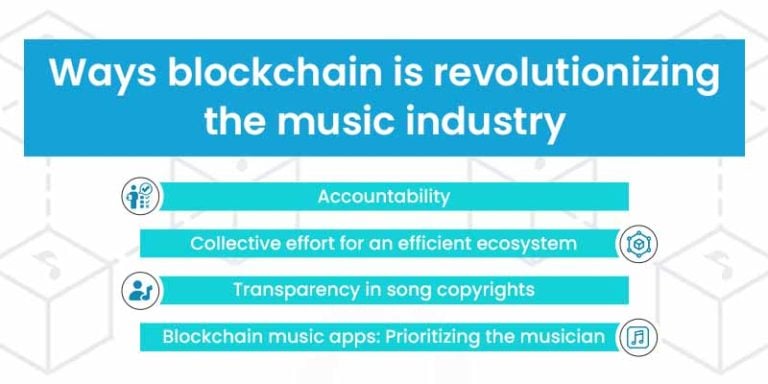The Harmony Of Blockchain And Music: Unlocking The Future Of The Industry
The Harmony of Blockchain and Music: Unlocking the Future of the Industry

- The Future Of Intellectual Property Protection Unlocking The Power Of Blockchain
- The Insider’s Guide To Spotting A Winning ICO: What To Look For Before You Invest
- What Is A Dao Decentralized Autonomous Organization
- The Rise Of Central Bank Digital Currencies Cbdcs
- Crypto Volatility: The Wild West Of Trading
Imagine a world where musicians have complete control over their creative work, and fans can directly support their favorite artists without the need for intermediaries. Welcome to the future of the music industry, where blockchain technology is revolutionizing the way we create, distribute, and engage with music.
As we navigate the complexities of the modern music landscape, it’s clear that current systems are ripe for disruption. Musicians often struggle to receive fair compensation for their work, while fans are left with limited options for discovering new artists and engaging with their favorite music. But what if we told you that blockchain technology could change all that?
The Power of Transparency
One of the most significant benefits of blockchain technology is its ability to provide transparency in the music industry. Smart contracts, which are self-executing contracts with the terms of the agreement written directly into lines of code, can automate the payment process for musicians. This means that artists can receive fair compensation for their work, without the need for intermediaries like record labels and distributors.
For example, platforms like Ujo Music and Revelator are using blockchain technology to create transparent and efficient royalty payment systems. These platforms allow musicians to set their own rates and terms, and ensure that they receive payment for every play, download, or stream of their music.
The Rise of Decentralized Music Platforms
Another area where blockchain technology is making waves is in the development of decentralized music platforms. These platforms, such as Audius and Resonate, are using blockchain technology to create community-driven music ecosystems.
Rather than relying on centralized authorities like record labels and streaming services, decentralized music platforms empower musicians to take control of their own careers. These platforms allow artists to upload, share, and monetize their music directly with fans, without the need for intermediaries.
The Potential for Direct Artist-to-Fan Engagement
One of the most exciting aspects of blockchain technology in the music industry is its potential for direct artist-to-fan engagement. Imagine being able to buy exclusive merchandise, attend private concerts, or even collaborate with your favorite artists, all through a secure and transparent blockchain-based platform.
Platforms like Rally and Mint Songs are making this a reality, by allowing artists to create and sell unique, blockchain-based tokens that represent exclusive experiences or content. These tokens can be bought, sold, and traded by fans, creating a new and innovative way for artists to engage with their audience.
The Future of Music Ownership
Finally, blockchain technology has the potential to redefine music ownership as we know it. With the rise of decentralized music platforms and transparent royalty payment systems, musicians can regain control over their creative work.
But what does this mean for fans? In the future, fans may no longer be limited to simply purchasing or streaming music. Instead, they may be able to buy, sell, and trade unique, blockchain-based tokens that represent ownership of exclusive music experiences or content.
The future of the music industry is bright, and blockchain technology is leading the way. From transparent royalty payment systems to decentralized music platforms, this revolutionary technology is empowering musicians and fans alike.
As we look to the future, it’s clear that blockchain technology will continue to play a major role in shaping the music industry. Whether you’re an artist, fan, or music industry professional, one thing is certain: the harmony of blockchain and music is only just beginning to unfold.
